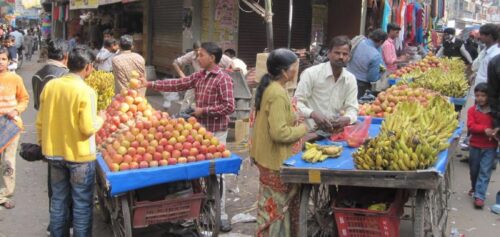INFORMAL ECONOMY AND PARALLEL ECONOMIC SYSTEMS
Introduction:
The global economy is a complex web of formal and informal systems working in tandem. While the formal economy represents the regulated and documented economic activities, the informal economy and parallel economic systems operate outside conventional boundaries. These alternative economic structures have gained significant attention in recent years due to their unique characteristics and the vital role they play in various societies worldwide. This article delves into the concept of the informal economy and parallel economic systems, exploring their nature, significance, and implications.
Understanding the Informal Economy:
The informal economy refers to economic activities that are not regulated, recorded, or protected by the government. These activities often take place within small-scale enterprises, street vending, domestic work, and other unregulated sectors. Participants in the informal economy may lack formal contracts, social security, legal protections, and access to financial services. While it is challenging to measure the informal economy’s size accurately, it is estimated to constitute a significant portion of global economic activity.
Characteristics of the Informal Economy:
- Cash-based Transactions: Informal economic activities are predominantly conducted through cash transactions, bypassing formal banking channels and taxation systems.
- Flexible Work Arrangements: Participants in the informal economy often engage in temporary, part-time, or irregular work arrangements, lacking formal contracts or employee benefits.
- Lack of Regulations: Informal economic activities operate outside regulatory frameworks, often evading labor and tax laws, which can lead to exploitation and reduced worker protections.
- Social Networks and Trust: Informal economies rely heavily on personal relationships and trust networks, as participants often lack access to formal institutions and legal remedies.
- Resourcefulness and Informal Innovation: Participants in the informal economy often exhibit resourcefulness and creativity in adapting to challenging circumstances, developing innovative solutions to meet market demands.
Parallel Economic Systems:
Parallel economic systems are alternative economic structures that coexist alongside the formal economy, serving specific social, cultural, or geographical contexts. These systems emerge as responses to gaps or failures in the formal economy, often addressing the needs of marginalized communities or catering to unmet demands. Examples of parallel economic systems include community currencies, time banking, barter systems, and local exchange trading systems (LETS). These systems provide participants with alternative means of exchange, fostering self-reliance and community cooperation.
Significance and Implications:
- Poverty Alleviation: The informal economy and parallel economic systems provide livelihood opportunities for millions of people, particularly in developing countries where formal employment options are limited. They contribute to poverty reduction and economic resilience.
- Social Inclusion: Alternative economic systems create avenues for marginalized communities to participate in economic activities, fostering social inclusion and empowerment.
- Economic Resilience: Informal economies and parallel economic systems can adapt more swiftly to changing circumstances and economic shocks, providing a safety net during times of crisis.
- Informal Sector Integration: Governments and policymakers recognize the importance of integrating the informal economy into the formal sector to enhance social protection measures, promote fair labor practices, and broaden the tax base.
- Regulatory Challenges: Balancing the need to regulate and protect workers in the informal economy while avoiding stifling their entrepreneurial spirit presents a significant challenge for policymakers.
Conclusion:
The informal economy and parallel economic systems represent dynamic and resilient aspects of the global economy. While they operate outside formal frameworks, they play a crucial role in providing livelihoods, fostering social inclusion, and contributing to local economies. Governments and policymakers need to acknowledge their significance, develop strategies for integrating the informal economy, and explore ways to bridge the gap between formal and alternative economic systems. By doing so, they can promote economic inclusivity, social justice, and sustainable development in an increasingly interconnected world.



